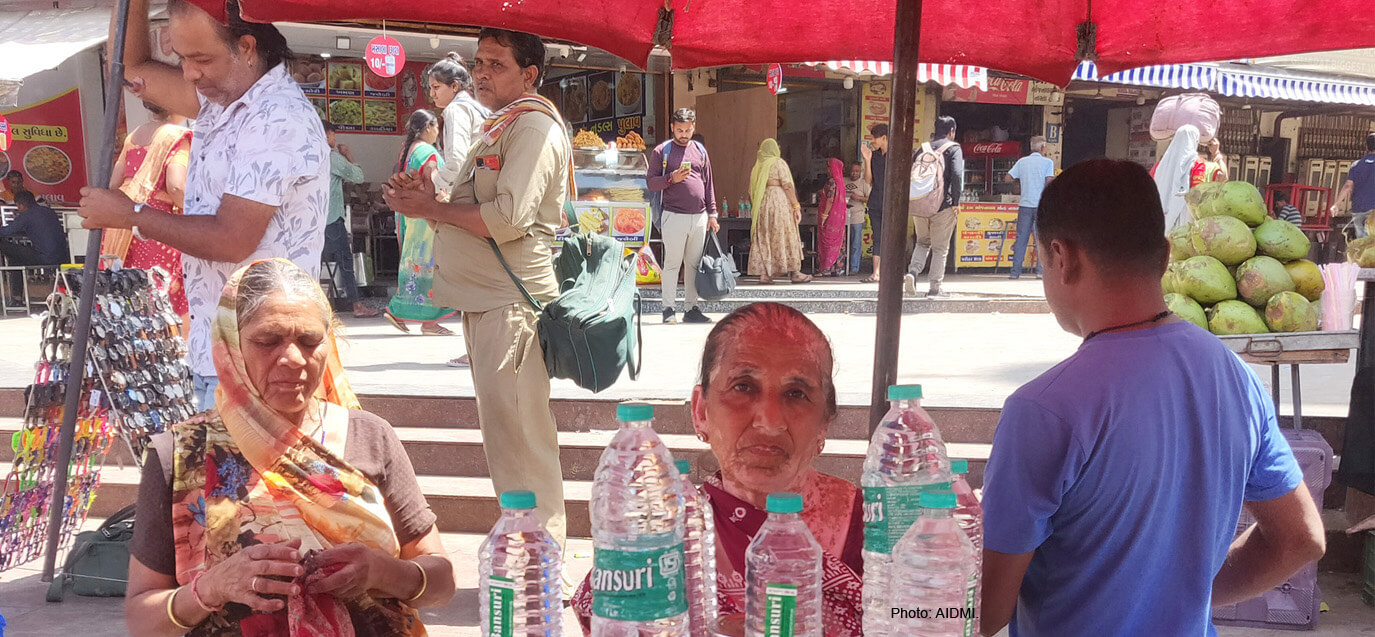
By Shombi Sharp, RCO, UN Resident Coordinator, India
The heat is on. With the decade ending last year being the warmest on record, an estimated 1.2°C above pre-industrial levels already, we face an urgent need to limit global warming and its devastating impacts. Extreme heat stands out as one of the most pressing, fast-growing climate challenges, affecting billions worldwide.
The implications are staggering. Evidence suggests an annual 1℃ increase in temperature leads to a more than 9 per cent increase in poverty. Further, 12 per cent of all food produced is lost due to a lack of cooling and the equivalent of 80 million full-time jobs could be lost due to heat stress by 2030, not to mention health impacts including significant loss of life.
This underlines the urgency of the Call to Action on Extreme Heat issued by United Nations Secretary-General António Guterres, who stressed that “Earth is becoming hotter and more dangerous for everyone, everywhere.”
Limiting warming to 1.5°C is crucial to reduce risks and impacts on human health, food security, and ecosystems. This goal requires tripling renewable energy capacity and doubling energy efficiency improvements by 2030 while accelerating the transition away from fossil fuels. At the same time, climate-smart infrastructure and cooling strategies are urgently needed.
India, home to one-sixth of the world’s population, is at the forefront of this climatic challenge. The subcontinent is experiencing a dramatic increase in the frequency and intensity of heatwaves. According to the India Meteorological Department, May 2024 was the hottest May in 36 years, with temperatures reaching alarming heights. Extreme heat has had devastating impacts, including exacerbating the urban heat island effect, where city temperatures can be up to 6°C higher than surrounding rural areas.
In response to this growing threat, India has initiated an ambitious strategy. The Ahmedabad Heat Action Plan, launched in 2013, has become a model for urban heat resilience. Research published in The Lancet Planetary Health demonstrates a significant 20% reduction in heat-related mortality since its implementation. Building on this success, the National Disaster Management Authority, in collaboration with United Nations agencies, is expanding and institutionalising heat action strategies nationwide.
The UN is at the forefront of partnering for solutions to address urban heat. In Chennai for example, UNEP has teamed up with the Chennai Metropolitan Development Authority and CEPT University to create an advanced Urban Heat Island Effect assessment methodology. This innovative approach will transform urban planning by providing a framework for sustainable cooling strategies adaptable to India’s diverse urban environments.
However, these extreme heat events disproportionately affect the most vulnerable members of society, including young children, the elderly, and economically disadvantaged communities.
And the climate crisis is not gender-neutral. Women and girls face unique challenges due to climate change, which amplifies existing gender inequalities and poses risks to their livelihoods, rights, health, and safety. For instance, in agriculture, where women make up a significant portion of the workforce, extreme heat not only reduces crop yields but also increases physical strain. Pregnant women are at higher risk of complications and heat-related illnesses during extreme heat events.
The UN system in India remains committed to supporting both government and community-led initiatives. Our approach includes helping improve early warning systems, advocating for sustainable urban cooling solutions, strengthening healthcare systems to manage heat-related health issues, and promoting inclusive, gender-sensitive adaptation measures.
As we face this global challenge, India is increasingly leading by example through development solutions at scale domestically, supporting South-South Cooperation, and amplifying the voice of the Global South for Climate Justice. By accelerating our response to extreme heat through a comprehensive approach —incorporating thermal comfort standards into building codes, improving early warning systems, and strengthening healthcare infrastructure — we not only protect millions of lives but also pave the way for a sustainable, resilient future.
The time for action is now. Together, we can cool our world and safeguard our shared tomorrow.
Disclaimer: The views expressed in this piece are those of the author/s and do not necessarily reflect the views or policies of AIDMI.